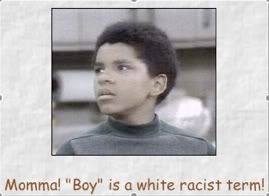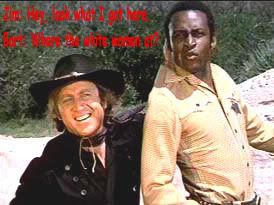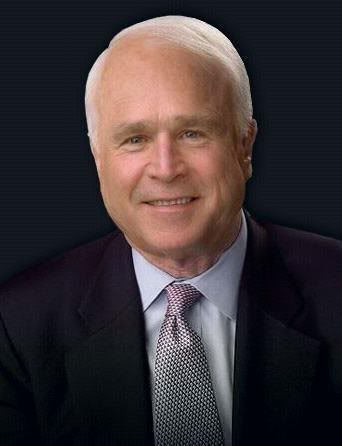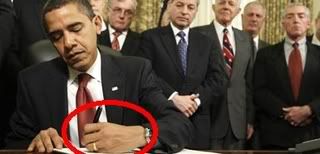Speaking for as many who care.I've already
written at length on the idea that being bitter is not only justified, but rational in these times.
But Jake Tapper at ABC thinks Obamatons are avoiding the "clinging" part of the controversy, neglecting the debate on religion, guns, bigotry and anti trade and immigration sentiments as a result of the bitterness they think is justified.
Not to get too hung up on Tapper's piece, there's some pretty obvious water being carried here for Camp McClainton. In his first paragraph, doing the journalism thing, Jake describes Obama's initial comments that have caused the latest blog-valanche. See if you can spot the dog whistle he puts in his lede.
As Sen. Barack Obama, D-Ill., and his allies have locked into damage control mode and attempted to explain his controversial remarks about small-town Pennsylvanians, they've attempted to focus their pushback away from the most controversial part of his remarks to an elite crowd at a San Francisco fundraiser.
[Emphasis mine in case you missed the obvious.]Note also that the ABC network is working furiously to cover this bitter story, with
ABC's Sara Amos on Bill Clinton taking the easy pot shots, Tapper quoting fellow ABC news contributor Sunlen Miller's coverage of Obama doing anything but avoiding the issue, and
ABC's Eloise Harper quoting Hillary's spin that Barack's statement could doom the Democrats.
Fetch mah smellin' salts, Sonny. Ah feel faint. Ah do declare that ABC now stands for
Always
Bitter
Channel, at least this weekend. At the end Tapper does get around to telling us that Obama himself is not avoiding the issue, any issue, but taking it right on.
Psst, Mr Halperin. I know Drudge Rules Your World, but
he's already moved on to linking Barack making Hillary look like the fool she is. Mind you, Drudge's role in the fall of Bill Clinton is legendary, and
as Atrios noted, he "
really really really hates McCain. At least he did in the past." So in doing
McClainton's™ dirty work, you folks are on your own.
So lest I too be accused of avoiding the hard issue, lemme tell you a story.
Back in the days between law school graduation and taking the bar while I was clerking for Count Basie's nephew (no, really), in a firm where I was jokingly referred to as THE affirmative action program -- the token white guy, I worked on a lady's case who still haunts me.
It was a bankruptcy for one of the sweetest clients you could have. She was 60, widowed, and worked at what menial tasks her limited education, experience and weakening body would allow. She got over her head.
She felt quite embarassed by it all, not being able to make ends meet even though she had always tried to do the right thing. I suspected she was a bit too nice, a soft touch for useless relatives and unscrupulous "friends" who had taken advantage of her.
She was eligible for a Chapter 7 bankruptcy, a liquidation that would have essentially left her debt free but her home and possessions, such as they were, intact. She didn't have enough above the standard exemptions for any creditor to seize, but not enough income to keep them at bay. But she absolutely refused to take our advice which would have made her bills disapear -- poof!
This wonderful woman had no interest in the law, her rights, the very purpose of the bankruptcy code. She wanted to do the "right thing." She had a moral code, her deeply held conviction that to get her reward in the afterlife she had to live a pure life here. She wanted to repay her creditors every dime they were owed.
So that's what we did, we filed a Chapter 11 debt restructuring repayment plan. It was up to me to do the dirty work of drafting the plan, balancing her expenses with her income, leaving her enough to live on while getting her cretitors paid off within five years. I had to formulate a detailed budget for her, itemizing every expense down to the nickel.
Here's where it just got strange for me. See, she was more than a church going lady. Her life revolved around her church, which is fine. But she also tythed. She gave 10% of every paycheck to her church.
This broke woman who was destined to live on Ramen for the next five years gave ten percent of everything she made to the church -- before taxes even. It was a deal-breaker, non-negotiable. The gas company, her mortgage company, J.C,Penney's and VISA would all lose out on any interest payments, just getting their principle back. She could live with that as long as she paid back the total owed at that point. But the church wouldn't miss a check.
There was no talking her out of it, or even cutting back. But the last thing I would describe her as was ... bitter. She was a delight. Her faith, a faith I did't understand and will never share, kept her from the self-indulgence of a bitter, blame everyone, someone, anyone else for what life had dealt her.
Working her case was a seminal moment in my life. It effected me deeply on two levels.
One, I developed a deep loathing of bankruptcy cases and never did another one.
Two, my apathy towards organized religion turned to antipathy for an organization built on the idea that we should help our neighbors, help alleviate the suffering of others, that should be dedicated to eliminating poverty,
took instead of
gave to one of it's most dedicated members when she was in need.
Now you can argue that the church gave her what she really needed, the ability to turn away from the path of bitterness. And truly, that's great. Maybe a miracle even.
I probably shouldn't have presumed that anyone in her church knew she was too poor to keep on giving the way she did. For my part, I didn't feel comfortable enough with her to argue about moats and boards in her eye, and didn't want to insult her faith. But as far as I was concerned, she was brainwashed and the church took advantage of her pride.
You might even say that clinging to her religion stopped her from being bitter. Such is the influence of our churches in America. She didn't seem political at all, but conscientious enough to vote -- probably the way the leaders of her church suggest.
The thing is, it's obvious to me her church cared a lot less about her than she did about it. Under those circumstances, it's easy to see how she and so many others could end up being convinced that voting against their economic interests is the "right" thing to do. After all, they should be able to trust their church more than politicians. After all, they should be able to trust their church more than politicians. And there's a lot of church leaders out there more than willing to tell their congregations how to vote.
 Exposing the lack of compassion by conservatives and
debunking right wing hypocrisy at every opportunity.
Exposing the lack of compassion by conservatives and
debunking right wing hypocrisy at every opportunity.


















 Subscribe via Email
Subscribe via Email